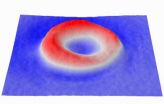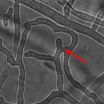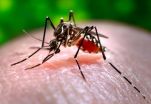(Press-News.org) A new breast cancer vaccine candidate, (GP2), provides further evidence of the potential of immunotherapy in preventing disease recurrence. This is especially the case for high-risk patients when it is combined with a powerful immunotherapy drug. These findings are being presented by The University of Texas MD Anderson Cancer Center at the 2014 American Society of Clinical Oncology's Breast Cancer Symposium in San Francisco.
One of only a few vaccines of its kind in development, GP2 has been shown to be safe and effective for breast cancer patients, reducing recurrence rates by 57%. Further, women with the highest overexpression of HER2 (known as HER2 +3) had no cancer recurrences when they were administered the vaccine after completing trastuzumab (Herceptin), a type of immunotherapy drug known as a monoclonal antibody. HER2 is an oncoprotein that promotes tumor growth and is expressed to some extent in 75-80% of breast cancers.
"This is an important and different avenue in immunotherapy research, in that we are investigating ways to prevent cancer recurrence by stimulating the immune system to treat cancer," says principal investigator Elizabeth Mittendorf, M.D., Ph.D., associate professor of Surgical Oncology. "The ultimate goal is to develop a preventative tool that will minimize the risk of recurrence in women who have already had breast cancer and for whom standard therapies have failed."
The findings are the result of a phase II randomized trial that paired the GP2 vaccine, designed to stimulate the CD8+ cells, commonly known as "killer" or "toxic" T cells, with an immune stimulant known as granulocyte/macrophage colony stimulating factor (GM-CSF). The trial included 190 patients with varying levels of HER2; 89 women received the GP2 vaccine with a GM-CSF adjuvant and a control group of 91 patients received GM-CSF alone. Eight patients experienced early recurrence or developed a second malignancy and did not complete the vaccine trial. The vaccine is injected subcutaneously and the initial series consisted of monthly inoculations for six months, followed by four cycles of booster shots administered every six months thereafter. The patients were monitored for nearly three years.
For all 190 patients, including those who did not complete the trial, the disease-free survival (DFS) rate was 88% among those who received the vaccine and 81% in the control group – representing a 37% reduction in recurrence. Excluding the patients who did not complete the vaccine series, the results are higher – 94% DFS rate versus 85% who did not get GP2 – a 57% risk reduction.
Women with HER2 +3 who were administered trastuzumab as part of the standard of care prior to receiving the vaccine experienced no cases of cancer recurrence. According to Mittendorf, trastuzumab may act like a primer for the vaccine. Trastuzumab stimulates CD4+ T cells to release substances that fight cancer cells and initiates an antibody response. Thus, it may prepare the immune system, making the vaccine even more effective. MD Anderson is now Personalized Immunotherapy
testing this combination of immunotherapies in other clinical trials.
The GP2 study supports previous MD Anderson research on similar breast cancer vaccines, such as AE37, which showed a significant immune response and improved recurrence rates in triple-negative breast cancer patients. Another candidate, E75, known as NeuVax or nelipepimut-S, showed a 50% recurrence decrease in high-risk patients. Currently, NeuVax is being tested internationally in a phase III clinical trial.
"We believe many more patients will benefit in some way from immunotherapy," says Mittendorf. "The challenge will be identifying the right immunotherapeutic approach for each individual patient. When doctors are able to do that, cancer therapy, and immunotherapy specifically, will follow a more personalized approach."
INFORMATION:
Other researchers contributing to the study include: Jennifer Litton, M.D.; James Murray, M.D., MPH; Guy Clifton, M.D. from MD Anderson; John Berry, M.D., Nathan Shumway, M.D., Timothy Vreeland, M.D., George Peoples, M.D., Erika Schneble, M.D., Julia Greene, M.D. and Alfred Trappey, M.D. from Brooke Army Medical Center; Sathibalan Ponniah, Ph.D. from Uniformed Services University of the Health Sciences; Alexandros Ardavanis, M.D., Michael Papamichail, M.D. and Sonia Perez, M.D. from Saint Savvas Cancer Hospital in Athens, Greece.
Novel immunotherapy vaccine decreases recurrence in HER2 positive breast cancer patients
Women who received trastuzumab, Herceptin, as part of standard treatment show greatest benefit
2014-09-05
ELSE PRESS RELEASES FROM THIS DATE:
UT Southwestern researchers find new gene mutations for Wilms Tumor
2014-09-05
DALLAS – Sept. 5, 2014 – Researchers at UT Southwestern Medical Center and the Gill Center for Cancer and Blood Disorders at Children's Medical Center, Dallas, have made significant progress in defining new genetic causes of Wilms tumor, a type of kidney cancer found only in children.
Wilms tumor is the most common childhood genitourinary tract cancer and the third most common solid tumor of childhood.
"While most children with Wilms tumor are thankfully cured, those with more aggressive tumors do poorly, and we are increasingly concerned about the long-term adverse ...
Study reveals breast surgery as a definitive and safe treatment for elderly patients
2014-09-05
Singapore, 5 September 2014 – A study conducted by National Cancer Centre Singapore (NCCS) has shown that age per se is not a contraindication to breast cancer surgery, and such surgeries may be safely performed for women aged 80 years and above. Led by Dr Ong Kong Wee, Senior Consultant in the Division of Surgical Oncology, the team consists of Dr Veronique Tan, Consultant, and Dr Lee Chee Meng, Resident Doctor. The study explores the safety of breast cancer surgery in women aged 80 years and above.
A retrospective analysis was performed on 109 elderly women who underwent ...
Banked blood grows stiffer with age, study finds
2014-09-05
CHAMPAIGN, Ill. — It may look like fresh blood and flow like fresh blood, but the longer blood is stored, the less it can carry oxygen into the tiny microcapillaries of the body, says a new study from University of Illinois researchers.
Using advanced optical techniques, the researchers measured the stiffness of the membrane surrounding red blood cells over time. They found that, even though the cells retain their shape and hemoglobin content, the membranes get stiffer, which steadily decreases the cells' functionality.
Led by electrical and computer engineering professor ...
Brain mechanism underlying the recognition of hand gestures develops even when blind
2014-09-05
Does a distinctive mechanism work in the brain of congenitally blind individuals when understanding and learning others' gestures? Or does the same mechanism as with sighted individuals work? Japanese researchers figured out that activated brain regions of congenitally blind individuals and activated brain regions of sighted individuals share common regions when recognizing human hand gestures. They indicated that a region of the neural network that recognizes others' hand gestures is formed in the same way even without visual information. The findings are discussed in ...
Synthetic messenger boosts immune system
2014-09-05
This news release is available in German. When a pathogen attacks a healthy cell in the body, T lymphocytes are tasked with identifying and destroying the infected cell. Scientists know that they undergo a "training program" for this task in the lymph nodes or the spleen. "Programming cells" play a key role here, presenting pathogen constituents to the T lymphocytes. This is how the T lymphocytes learn to recognize these components and become specialized "killer" cells. Research teams led by Prof. Percy Knolle from Klinikum rechts der Isar and the University of Bonn ...
Combination microRNA therapy shown to suppress non-small-cell lung cancer
2014-09-05
BOSTON – Micro RNAs (miRNA) have recently emerged as key therapeutic agents against cancers and are actively being evaluated in pre-clinical models of various cancers as well as in human clinical trials.
Now, new findings show that a combination therapy of two miRNAs, let-7 and miR-34, suppressed tumor growth in an animal model of non-small-cell lung cancer, offering a promising therapeutic avenue for this extremely aggressive malignancy.
Currently reported online in the journal Oncogene, the study provides two important examples of basic science discoveries making ...
Stigma as a barrier to mental health care
2014-09-05
Over 60 million Americans are thought to experience mental illness in a given year, and the impacts of mental illness are undoubtedly felt by millions more in the form of family members, friends, and coworkers. Despite the availability of effective evidence-based treatment, about 40% of individuals with serious mental illness do not receive care and many who begin an intervention fail to complete it. A new report, published in Psychological Science in the Public Interest, a journal of the Association for Psychological Science, investigates stigma as a significant barrier ...
An 'anchor' that keeps proteins together
2014-09-05
All organisms react to different external and internal stimuli: if, for example, the hyphae fungus Sordaria macrospora is supplied with food, it produces fruiting bodies as part of its oestrous cycle. To initiate this reaction, signals have to be transmitted within the cell, which are conveyed by proteins. Physical proximity is a fundamental requirement for different proteins to be able to communicate with each other. Generating that proximity is what scaffolding proteins do, by binding like an anchor to several proteins and keeping them together for the duration of signal ...
Use of dengue vaccine may cause short-term spikes in its prevalence
2014-09-05
CORVALLIS, Ore. – As researchers continue to work toward vaccines for serious tropical diseases such as dengue fever, experts caution in a new report that such vaccines will probably cause temporary but significant spikes in the disease in the years after they are first used.
This counter-intuitive and unwanted result could lead to frustrated policy makers, a skeptical public and concerns that the vaccine is making things worse instead of better, researchers say.
In fact, it will just be the natural result of complex interactions between less-than-perfect vaccine protection ...
E-cigarettes: Studies presented at the ERS Congress
2014-09-05
Munich, Germany: The latest evidence on the potential benefits and risks of e-cigarettes has been presented this week at the European Respiratory Society's International Congress in Munich.
Electronic cigarettes have received much attention in recent years as their use has increased across Europe. As the devices are relatively new, there is little long-term evidence detailing the potential harm or benefit that these devices can cause.
During the ERS Congress, a number of abstracts will be presented on the topic. The key outcomes are revealed here:
Research into ...
LAST 30 PRESS RELEASES:
Kidney cancer study finds belzutifan plus pembrolizumab post-surgery helps patients at high risk for relapse stay cancer-free longer
Alkali cation effects in electrochemical carbon dioxide reduction
Test platforms for charging wireless cars now fit on a bench
$3 million NIH grant funds national study of Medicare Advantage’s benefit expansion into social supports
Amplified Sciences achieves CAP accreditation for cutting-edge diagnostic lab
Fred Hutch announces 12 recipients of the annual Harold M. Weintraub Graduate Student Award
Native forest litter helps rebuild soil life in post-mining landscapes
Mountain soils in arid regions may emit more greenhouse gas as climate shifts, new study finds
Pairing biochar with other soil amendments could unlock stronger gains in soil health
Why do we get a skip in our step when we’re happy? Thank dopamine
UC Irvine scientists uncover cellular mechanism behind muscle repair
Platform to map living brain noninvasively takes next big step
Stress-testing the Cascadia Subduction Zone reveals variability that could impact how earthquakes spread
We may be underestimating the true carbon cost of northern wildfires
Blood test predicts which bladder cancer patients may safely skip surgery
Kennesaw State's Vijay Anand honored as National Academy of Inventors Senior Member
Recovery from whaling reveals the role of age in Humpback reproduction
Can the canny tick help prevent disease like MS and cancer?
Newcomer children show lower rates of emergency department use for non‑urgent conditions, study finds
Cognitive and neuropsychiatric function in former American football players
From trash to climate tech: rubber gloves find new life as carbon capturers materials
A step towards needed treatments for hantaviruses in new molecular map
Boys are more motivated, while girls are more compassionate?
Study identifies opposing roles for IL6 and IL6R in long-term mortality
AI accurately spots medical disorder from privacy-conscious hand images
Transient Pauli blocking for broadband ultrafast optical switching
Political polarization can spur CO2 emissions, stymie climate action
Researchers develop new strategy for improving inverted perovskite solar cells
Yes! The role of YAP and CTGF as potential therapeutic targets for preventing severe liver disease
Pancreatic cancer may begin hiding from the immune system earlier than we thought
[Press-News.org] Novel immunotherapy vaccine decreases recurrence in HER2 positive breast cancer patientsWomen who received trastuzumab, Herceptin, as part of standard treatment show greatest benefit




